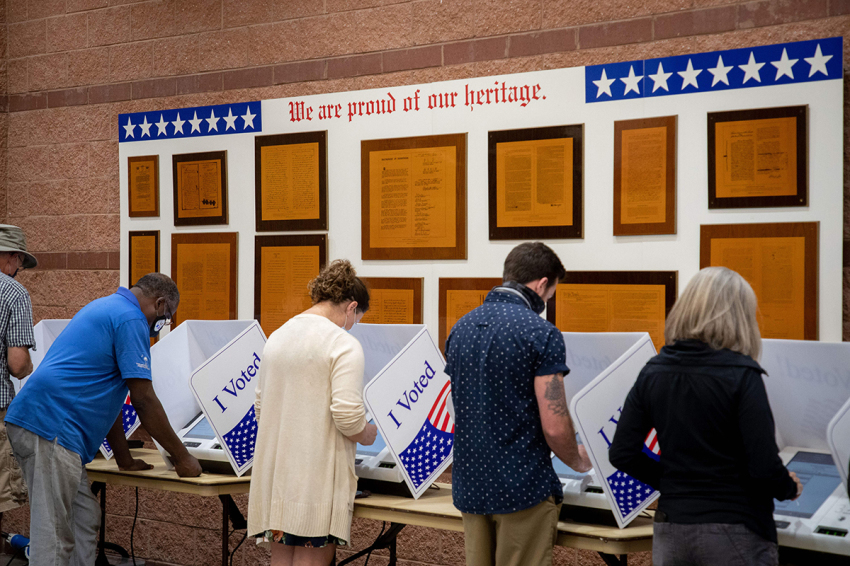3 things to know about Democrats voting rights bill

UPDATE: 12:15 a.m. ET Jan. 20: Late Wednesday night, Senate Democrats failed to change a filibuster rule in an attempt to pass the John R. Lewis Voting Rights Advancement Act that would have federalized elections, giving the federal government the power to upend state laws banning ballot harvesting and requirements to show a photo ID to vote. Democratic Sens. Joe Manchin, W.Va., and Kyrsten Sinema, Ariz., voted along with Republicans to not change the filibuster rule. The vote was 52-48.
Original report:
Democrats are pushing for the passage of the John R. Lewis Voting Rights Advancement Act of 2021 this week, painting the measure as a necessary step to preserve civil rights leader Martin Luther King Jr.’s legacy.
The John R. Lewis Voting Rights Advancement Act, named in honor of the late Georgia Congressman John Lewis, also known simply as the voting rights bill, is the latest effort by congressional Democrats to pass a bill that would increase federal oversight of elections in the United States, which has historically granted the powers of election supervision to the states. The For the People Act, another bill designed to increase the federal government’s role in overseeing elections, failed to pass.
The John R. Lewis Voting Rights Advancement Act passed the Democrat-controlled House of Representatives in a party-line vote last year, with all Democrats voting in favor of it and all Republicans voting against it. It faces an uphill battle for passage in the evenly divided Senate. While one Republican Senator, Lisa Murkowski of Alaska, has indicated that she supports the bill, her support is not enough to enable it to cross the 60-vote threshold required for most legislation to pass the Senate.
President Joe Biden has encouraged Senate Democrats to abolish the filibuster, the official name of the 60-vote rule, in order to pass the legislation. Two Senate Democrats, Krysten Sinema of Arizona and Joe Manchin of West Virginia, have indicated that they have no intention of supporting such an effort.
Sen. Raphael Warnock, R-Ga., urged his colleagues to “stand up for voting rights” at a Monday celebration of King’s Life at Ebenezer Baptist Church in Atlanta, Georgia. King preached there during his lifetime and Warnock continues to serve as the pastor there today. Warnock’s remarks came ahead of the Senate’s planned debate on the bill.
Democrats argue bills like the John R. Lewis Voting Rights Advancement Act are necessary to curb election laws passed in states like Georgia and Texas, which they portray as “voter suppression.” Republicans describe the bill as an attempt to secure Democratic Party rule and an unconstitutional takeover of state elections.
If passed now or in the future, the John R. Lewis Voting Rights Advancement Act would significantly impact the way the U.S. conducts elections. Here are three things to know about the John R. Lewis Voting Rights Advancement Act.
Ryan Foley is a reporter for The Christian Post. He can be reached at: ryan.foley@christianpost.com


























